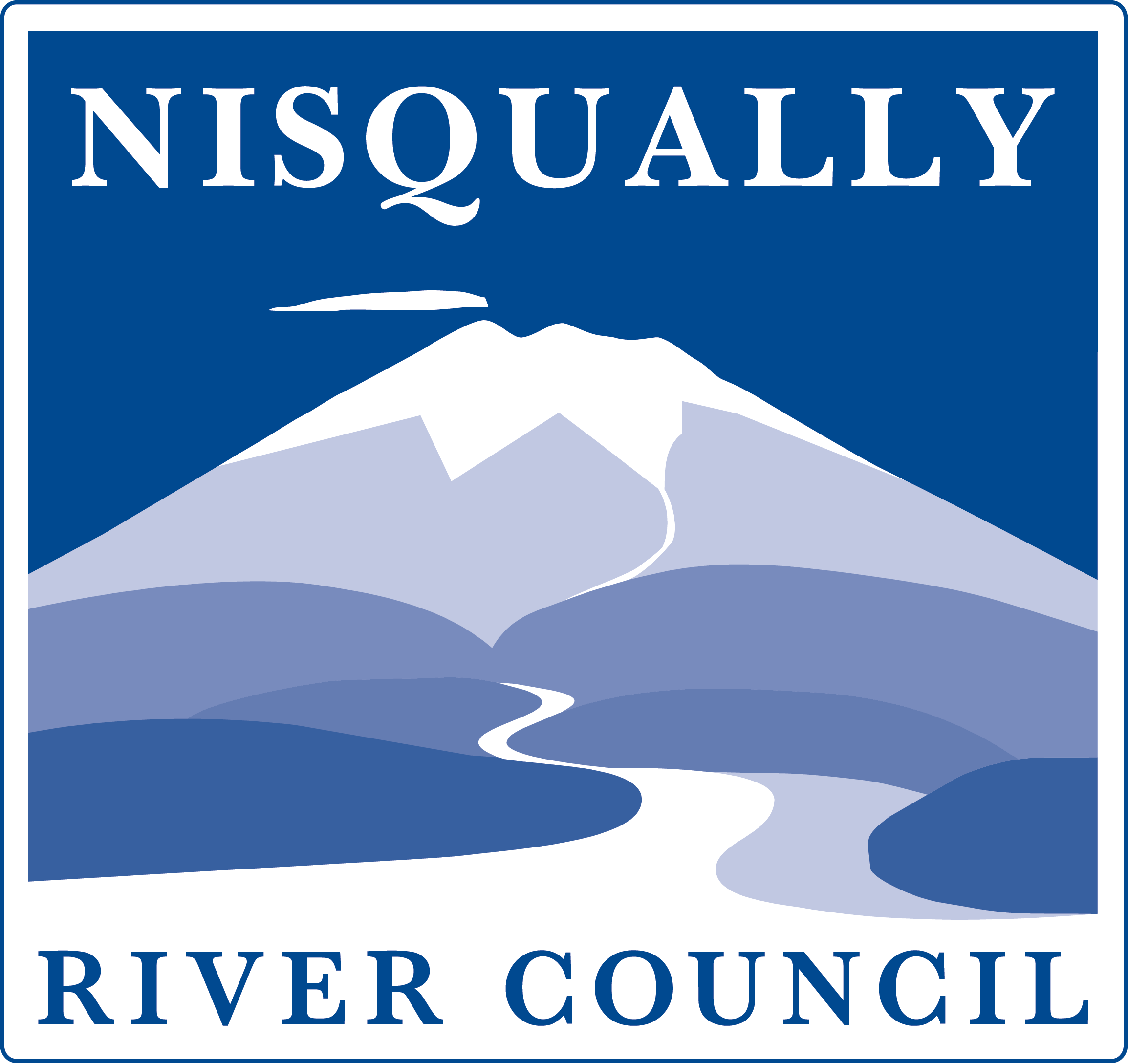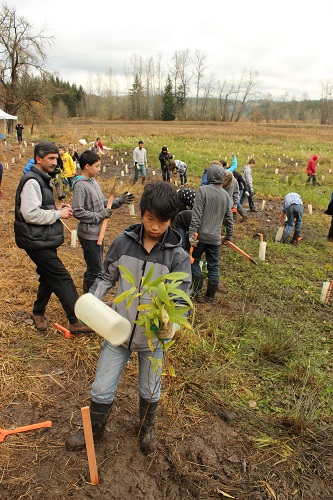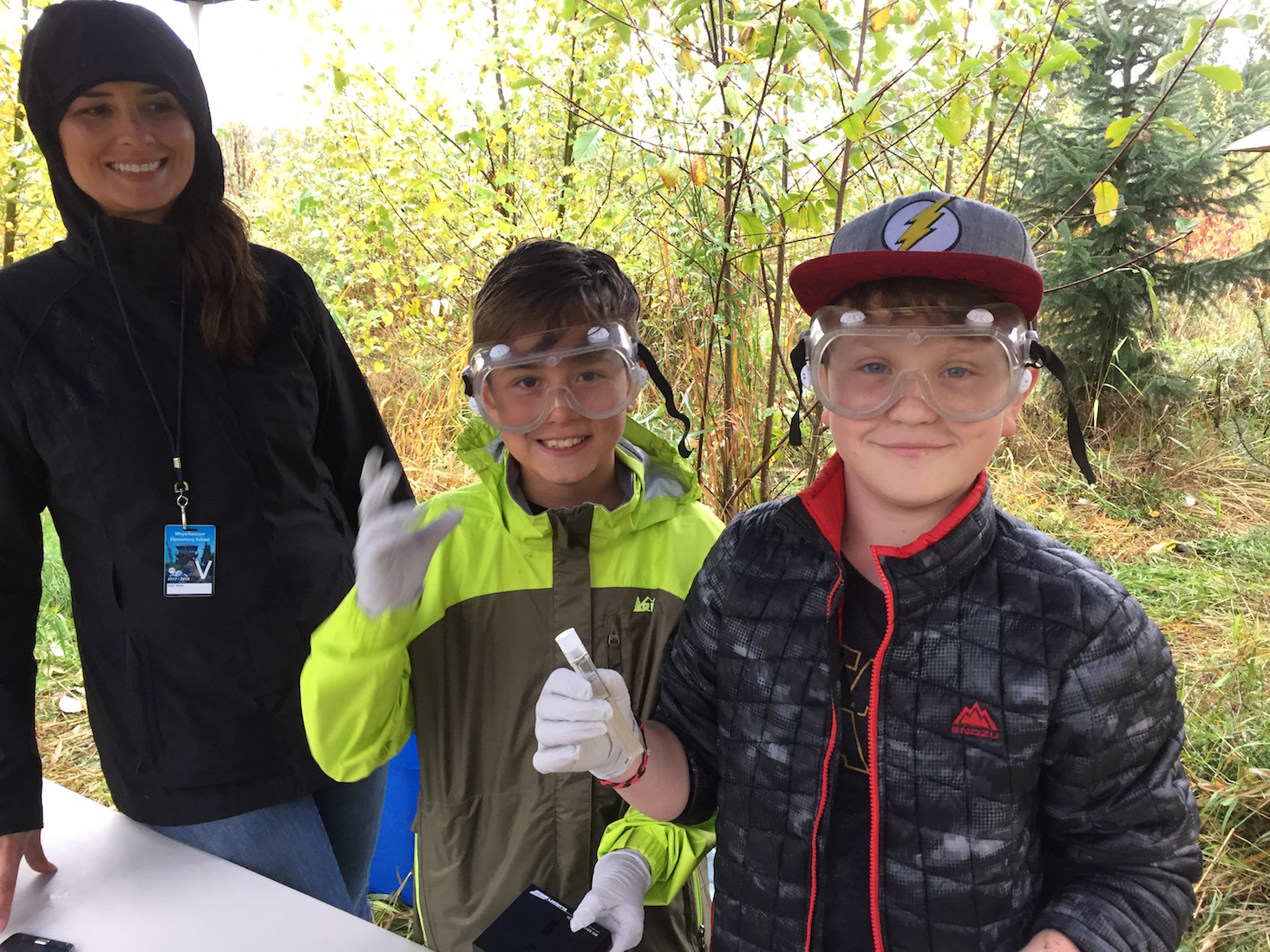Here is a list of the local non-profits working in the Nisqually Watershed on natural resources protection and education:
Nisqually River Foundation – The mission of the Nisqually River Foundation is to provide financial and staffing support to the Nisqually River Council as it implements the Nisqually Watershed Stewardship Plan. The mission of the Nisqually River Council is to create sustainability in the Nisqually Watershed for current and future generations by developing a common culture of environmental, social, and economic balance.
The Nisqually River Foundation is in charge of funding and staffing the activities of the Nisqually River Council. This includes: the Nisqually Stream Stewards program, which you are very familiar with!; the Nisqually River Education Project which provides opportunities to get the school students of the watershed out into the field to do things such as water quality monitoring, tree planting, nature mapping, and salmon carcass tossing. The Foundation is also currently working on climate change adaptation planning, developing a Nisqually River Water trail, helping with the development of the Nisqually Community Forest, and lastly the Foundation runs two festivals in the watershed, the Nisqually Watershed festival at the Nisqually National Wildlife Refuge and the Eatonville Salmon Festival in Eatonville. Donations to the Foundation are used primarily to support our outreach and education efforts, particularly the efforts of the Nisqually River Education Project and the Nisqually Stream Stewards.
Nisqually Land Trust – The mission of the Nisqually Land Trust is to acquire and manage critical lands to permanently benefit the water, wildlife, and people of the Nisqually River Watershed.
The Land Trust is actively working to acquire lands and once acquired they are actively working to restore those lands. They have a robust program, that you have participated in, to get folks out helping with that land restoration and they also have needs related to the general stewardship of their lands.. Donations to the Land Trust generally go towards supporting restoration and stewardship of their lands.
Nisqually Reach Nature Center – Nisqually Reach Nature Center is a volunteer-run, membership-supported, nonprofit organization that promotes the understanding, appreciation, and preservation of the Nisqually estuarine ecosystem and its integral role in the local environment, history, and culture, through interpretation, education, and research.
The Nisqually Reach Nature Center offers school year field trips to their center and summer camps for youth to provide environmental education. They also have their center open on the weekends so that the general public can come in and learn and experience information about Puget Sound. Donations to the Center are used to support everything that they do.
Friends of the Nisqually National Wildlife Refuge – The mission of the Friends of Nisqually National Wildlife Refuge is to promote the conservation of the natural and cultural resources of the Nisqually NWR Complex, which includes Grays Harbor NWR, and engage in educational, charitable, scientific, and civic activities that will increase public awareness and assist in accomplishing Refuge goals.
The Friends group provides walks and tours and staffs the visitor center at the Nisqually National Wildlife Refuge and operates a gift shop to raise funds to help fund the needs of the refuge, especially the Refuge’s education program. Donations to the Friends group are primarily used to support the Refuge’s education program but can also be used for other needs of the Refuge.
South Puget Sound Salmon Enhancement Group – Protect and restore salmon populations and aquatic habitat with an emphasis on ecosystem function through scientifically informed projects, community education, and volunteer involvement.
The Enhancement Group is responsible for project management for most of the salmon recovery projects throughout the south Puget Sound, including in the Nisqually Watershed. Examples of projects are culvert removal or replacement, engineered log jam installation, and the recently completed re-meandering of Ohop Creek from a ditch to a new created stream bed. Donations are used primarily to support their education and outreach efforts.



